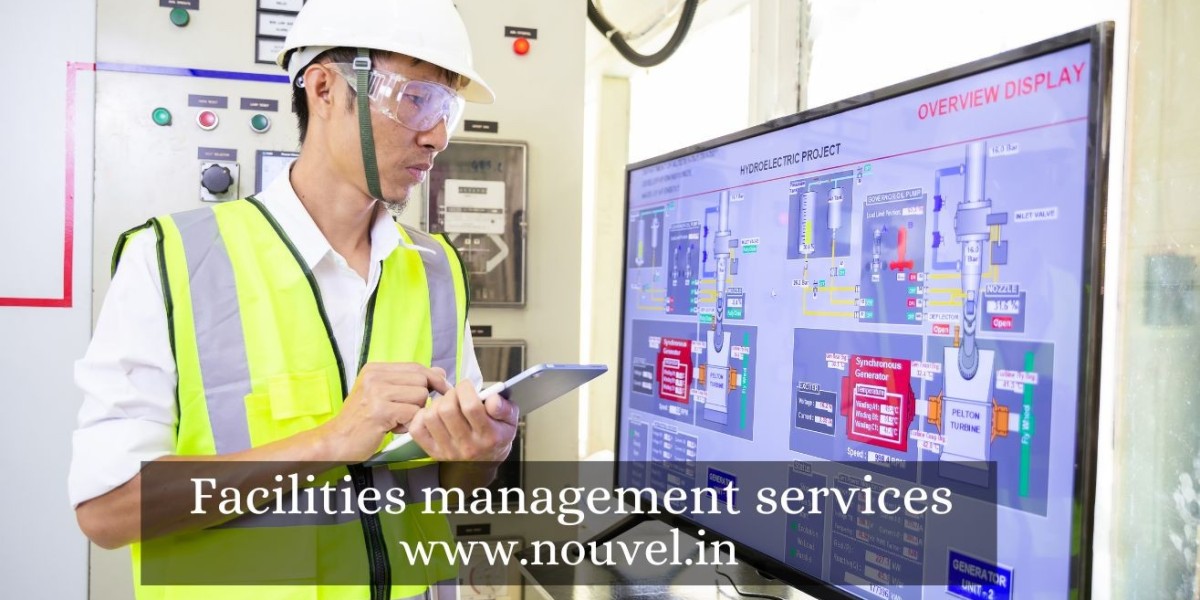Facilities management services play a vital role in ensuring the smooth functioning of workplaces, commercial spaces, and even residential complexes. These services encompass a wide range of tasks, including maintenance, cleaning, security, and space optimization, making them essential for organizations to operate effectively and efficiently.
In this article, we will explore the importance of facilities management services, their key components, and how they contribute to creating productive and safe environments.
1. What Are Facilities Management Services?
Facilities management services involve the coordination and management of physical spaces, assets, and people to ensure that an organization’s environment is functional, safe, and sustainable. It includes both hard services (physical infrastructure) and soft services (people-oriented tasks).
Key objectives include:
- Maintaining operational efficiency.
- Ensuring safety and compliance.
- Enhancing employee and customer satisfaction.
- Reducing operational costs.
2. Types of Facilities Management Services
Facilities management services can be broadly categorized into two main types:
a. Hard Services
These involve the maintenance and management of physical infrastructure. Examples include:
- HVAC (Heating, Ventilation, and Air Conditioning) maintenance.
- Electrical systems management.
- Plumbing and water supply systems.
- Building structure repairs and maintenance.
- Fire safety systems.
b. Soft Services
These focus on enhancing the experience of the people using the facility. Examples include:
- Cleaning and janitorial services.
- Security services and surveillance.
- Waste management.
- Landscaping and pest control.
- Concierge and front-desk services.
3. The Importance of Facilities Management Services
Facilities management is crucial for several reasons:
a. Operational Efficiency
Efficient management of facilities ensures that systems and infrastructure function optimally, reducing downtime and disruptions.
b. Cost-Effectiveness
Proactive maintenance prevents costly repairs and ensures resources are used efficiently, saving money in the long run.
c. Employee Productivity
A well-maintained and safe work environment boosts employee morale and productivity.
d. Sustainability
Facilities management integrates energy-efficient solutions and sustainable practices to minimize environmental impact.
e. Compliance and Safety
Ensuring that facilities meet regulatory standards protects organizations from legal liabilities and ensures the safety of occupants.
4. Key Components of Facilities Management Services
Facilities management services cover a wide range of responsibilities, including:
a. Maintenance and Repairs
Routine maintenance and timely repairs ensure that equipment and infrastructure are in top condition, preventing breakdowns.
b. Cleaning and Hygiene
Daily cleaning, deep cleaning, and sanitation services ensure that the premises are clean, hygienic, and presentable.
c. Security and Surveillance
Installing and maintaining security systems, providing security personnel, and monitoring access ensure the safety of occupants and assets.
d. Energy Management
Implementing energy-saving technologies and monitoring energy consumption help reduce operational costs and carbon footprints.
e. Space Planning and Management
Efficient space utilization ensures that the workspace is optimized for productivity while accommodating organizational needs.
f. Vendor Management
Coordinating with vendors and service providers ensures the seamless delivery of goods and services.
5. Benefits of Outsourcing Facilities Management Services
Many organizations choose to outsource facilities management services to specialized providers. Here are the benefits:
a. Expertise
Professional facility managers bring specialized knowledge and experience to handle complex tasks.
b. Cost Savings
Outsourcing reduces the need for in-house staff and infrastructure, saving costs.
c. Focus on Core Activities
Organizations can focus on their core business activities while leaving facility management to experts.
d. Access to Advanced Technology
Facilities management providers often use advanced tools and software for efficient operations.
e. Scalability
Outsourcing allows organizations to scale services up or down based on their needs.
6. The Role of Technology in Facilities Management
Technology has revolutionized facilities management, enabling smarter and more efficient operations. Key technologies include:
a. IoT (Internet of Things)
IoT devices monitor equipment performance and predict maintenance needs, reducing downtime.
b. CMMS (Computerized Maintenance Management Systems)
CMMS software tracks maintenance schedules, work orders, and asset history.
c. Energy Management Systems
These systems monitor energy consumption and identify areas for improvement.
d. AI and Automation
Artificial intelligence streamlines processes such as predictive maintenance and space planning.
e. Mobile Apps
Mobile apps enable facility managers to monitor and manage operations remotely.
7. Sustainability in Facilities Management
Sustainability is a key focus in modern facilities management. Practices include:
- Energy Efficiency: Using energy-efficient lighting, HVAC systems, and appliances.
- Waste Management: Implementing recycling programs and reducing waste.
- Water Conservation: Installing water-saving fixtures and systems.
- Green Building Practices: Using eco-friendly materials and technologies in construction and maintenance.
8. Challenges in Facilities Management
Facilities management is not without its challenges. Common issues include:
a. Budget Constraints
Balancing cost-efficiency with quality services can be challenging.
b. Aging Infrastructure
Maintaining older buildings and equipment requires additional effort and investment.
c. Technological Integration
Implementing and managing advanced technologies can be complex.
d. Regulatory Compliance
Keeping up with changing regulations requires constant vigilance.
9. Trends in Facilities Management
The industry is evolving rapidly, with trends such as:
- Smart Buildings: Facilities equipped with IoT devices for real-time monitoring.
- Flexible Workspaces: Adapting spaces for hybrid work models.
- Focus on Wellness: Creating spaces that promote health and well-being.
- Data-Driven Decisions: Using analytics to optimize operations.
- Outsourcing Growth: Increased reliance on specialized service providers.
10. Conclusion
Facilities management services by Nouvel are essential for maintaining functional, safe, and efficient environments. By integrating innovative technologies, sustainable practices, and expert management, organizations can ensure their facilities contribute to productivity, employee satisfaction, and cost savings.
Whether through in-house teams or outsourcing, investing in facilities management is an investment in the long-term success of any organization. Transform your spaces with effective facilities management and create environments that inspire and support excellence.









